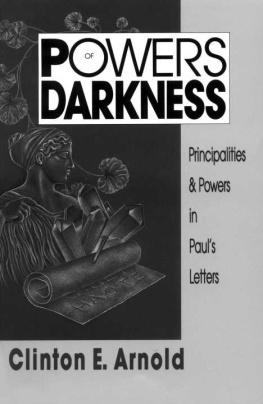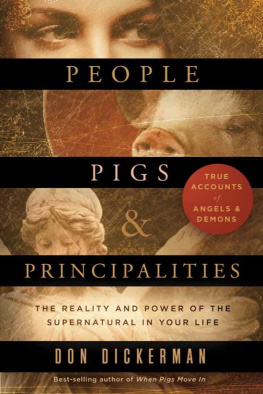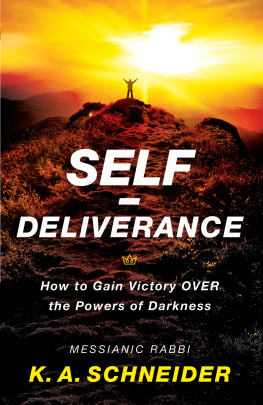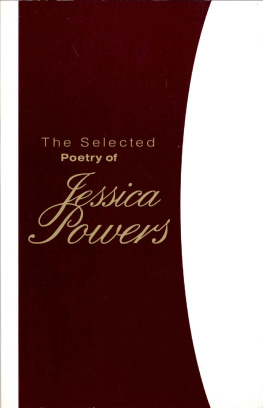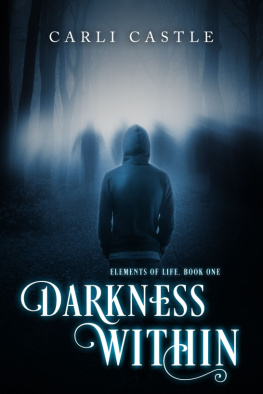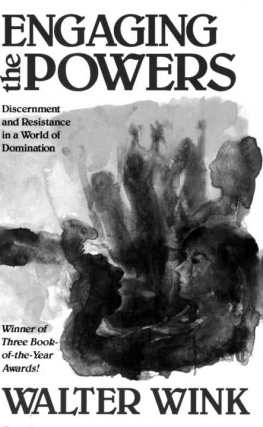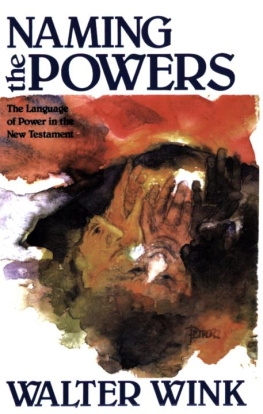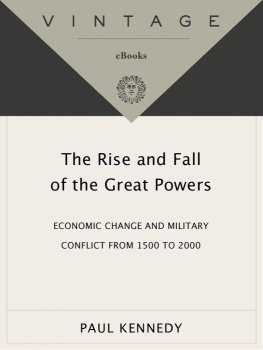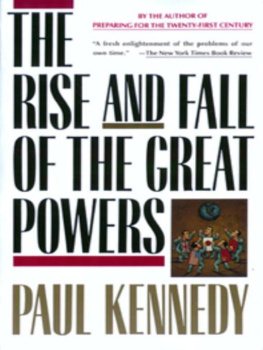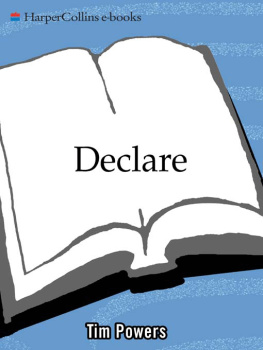Clinton E Arnold - Powers of Darkness: Principalities & Powers in Paul’s Letters
Here you can read online Clinton E Arnold - Powers of Darkness: Principalities & Powers in Paul’s Letters full text of the book (entire story) in english for free. Download pdf and epub, get meaning, cover and reviews about this ebook. year: 1992, genre: Religion. Description of the work, (preface) as well as reviews are available. Best literature library LitArk.com created for fans of good reading and offers a wide selection of genres:
Romance novel
Science fiction
Adventure
Detective
Science
History
Home and family
Prose
Art
Politics
Computer
Non-fiction
Religion
Business
Children
Humor
Choose a favorite category and find really read worthwhile books. Enjoy immersion in the world of imagination, feel the emotions of the characters or learn something new for yourself, make an fascinating discovery.
- Book:Powers of Darkness: Principalities & Powers in Paul’s Letters
- Author:
- Genre:
- Year:1992
- Rating:5 / 5
- Favourites:Add to favourites
- Your mark:
- 100
- 1
- 2
- 3
- 4
- 5
Powers of Darkness: Principalities & Powers in Paul’s Letters: summary, description and annotation
We offer to read an annotation, description, summary or preface (depends on what the author of the book "Powers of Darkness: Principalities & Powers in Paul’s Letters" wrote himself). If you haven't found the necessary information about the book — write in the comments, we will try to find it.
Powers of Darkness: Principalities & Powers in Paul’s Letters — read online for free the complete book (whole text) full work
Below is the text of the book, divided by pages. System saving the place of the last page read, allows you to conveniently read the book "Powers of Darkness: Principalities & Powers in Paul’s Letters" online for free, without having to search again every time where you left off. Put a bookmark, and you can go to the page where you finished reading at any time.
Font size:
Interval:
Bookmark:


Clinton E. Arnold
& Powers
in
Paul's
Lefters
To Jeffrey and Dustin with the prayer that the Lord would strengthen them with his power to resist the evil one and tell others of his love.
All citations from the Old Testament and New Testament are taken from the New International Version unless otherwise noted.
All citations of Old Testament pseudepigraphal documents are taken from James H. Charlesworth, ed., The Old Testament Pseudepigrapha, 2 vols. (New York: Doubleday, 1983, 1985), unless otherwise noted.
All citations of the Dead Sea Scrolls are taken from Geza Vermes, The Dead Sea Scrolls in English, 2d ed. (New York: Viking Penguin, 1975).
All citations of the Greek Magical Papyri (PGM) are taken from Hans Dieter Betz, ed., The Greek Magical Papyri in Translation (Chicago: University of Chicago Press, 1986), unless otherwise noted.
I do not like to think about evil. It grieves and frightens me. I would much rather ignore it and discuss something pleasant.
I think many Christians feel the same way, especially when it comes to discussing the notion of evil spirits and Satan. Christianity Today devoted its August 20, 1990, issue to this topic (for which I contributed one of the articles). The editor commissioned artist Michael Annino with the task of creating a suitable image of the devil for the cover, an image that would strip away the devil's disguise as "an angel of light." Annino did a good job, perhaps too good. Many readers wrote letters to the editor complaining bitterly about the horrific figure. The managing editor of the magazine was correct in observing that this "is not a pretty subject"!
Ultimately we cannot ignore the topic. Evil imposes itself upon us and those we love. And if we want help from the Bible for dealing with the problem of evil, we must be willing to take seriously what the Bible takes seriously: the intense involvement in life of a figure named Satan and his powers of darkness. Far too long the Western church has given neither sufficient nor serious attention to this topic. My Asian and African students tell me this repeatedly. They acknowledge a tremendous debt to the Western church for rich biblical teaching that has been passed on to them, but they cannot understand why so little has been offered on this topic. For them the issue of developing an appropriate Christian perspective on spirits is a foundational concern.
The Bible does indeed have much to say on this topic, especially the letters of the apostle Paul. This book is written for those who want to explore the extent of Paul's teaching on the evil unseen realm. Paul has far more to say on this topic than many realize. In recent years, despite the flood of popular publications dealing with "spiritual warfare," very little has been written from a biblical-theological perspective. It is my hope that this volume may provide a helpful beginning.
Initial credit for the appearance of this book must be given to Andy Le Peau, editorial director of InterVarsity Press, for convincing me that I should work on this project now rather than later. I also want to express my deepest thanks to Dr. W. Bingham Hunter, dean of Talbot School of Theology, who encouraged me to pursue this task and did all he could to support me along the way.
During the summer of 1990, I shared some of this material with a few groups of Rumanian Christians in Transylvania. While they expressed much appreciation for what they learned, I felt myself the greater beneficiary. They helped me a great deal in clarifying my thoughts in part three, especially the discussion on "The Powers and Society."
I owe many other people a public acknowledgment of my gratitude for their contributions to this project. Above all, I would like to thank my wife, Barbara, not only for her helpful suggestions for improving the manuscript, but also for her faithful partnership in the work of the ministry. Dr. Michael J. Wilkins gave me constant encouragement throughout the process. During the summer of 1989, as my department chairperson, he helped me clear my schedule to continue work on the manuscript. The Biola University Research Committee also supported the project with a grant. Tim Peck, my teaching assistant, carefully read a large portion of the manuscript, which resulted in numerous improvements. It remains for me to thank Dr. Joel Green, editor of Catalyst, for permission to use substantive portions of my article " `Principalities and Powers' in Recent Interpretation."
Three other people were very important to this project: Dr. Robert Saucy, for the many fruitful discussions on this topic and matters pertaining to the kingdom of God; Dr. Robert Yarbrough (Wheaton College), my teaching partner in Rumania, for reading the manuscript and offering critical interaction and encouragement; and Dr. I. Howard Marshall (University of Aberdeen) for first suggesting in 1986 that I write a popular treatment on this theme.
In 1992 Salem, Massachusetts, commemorated the 300th anniversary of the city's infamous witch trials. More than 400 persons were accused of being witches in the inquisition. Of these, 150 were jailed, 14 women and 5 men were hung, and one supposed witch was crushed to death under several tons of rock.
Today, as visitors tour an 1845 stone church converted into Salem's Witch Museum, the museum narrator greets them with, "Welcome to the Witch Museum. Do you believe in witches? Millions of our ancestors did."
Many people today find it incredible that our forebears gave credence to these ideas. How could anyone possibly believe that "witches" have actual supernatural powers, that spell-casting can work, and that evil spirits wreak all kinds of terror in peoples' lives? For most, these beliefs were rendered obsolete with the rise of the scientific age and the spread of educational opportunity for everyone.
Now, three centuries after the witch trials, no threat of a similar inquisition is looming, and I hope that that threat never will loom. But there is an upsurge of interest in witchcraft and the occult throughout the West. Note, for instance, the following advertisement that appeared in a recent tabloid:
I will cast a spell for you. I can cast a spell to make one love another, or cause a person to change his mind about a relationship, or bring two people together. I can do all these things because I have the combined powers of my mother who was a sorceress and my father, one of the most powerful warlocks who passed on his secrets to me moments before he moved on to a different world. My magical powers are beyond your imagination. I can cast a spell in your behalf regarding a relationship, your financial situation, future events, or whatever is important to you. I have the power and I use the power.'
Font size:
Interval:
Bookmark:
Similar books «Powers of Darkness: Principalities & Powers in Paul’s Letters»
Look at similar books to Powers of Darkness: Principalities & Powers in Paul’s Letters. We have selected literature similar in name and meaning in the hope of providing readers with more options to find new, interesting, not yet read works.
Discussion, reviews of the book Powers of Darkness: Principalities & Powers in Paul’s Letters and just readers' own opinions. Leave your comments, write what you think about the work, its meaning or the main characters. Specify what exactly you liked and what you didn't like, and why you think so.

